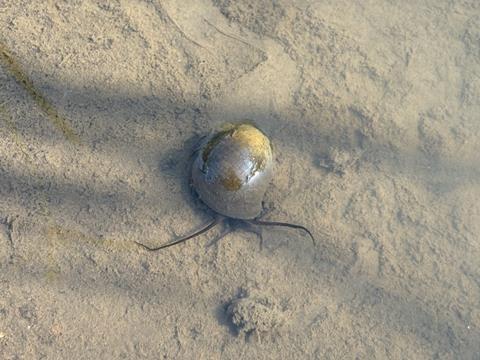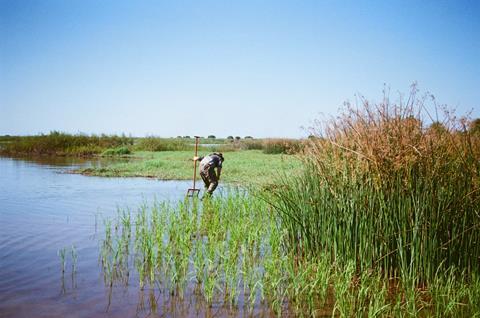Freshwater snails across Africa and the UK carry bacteria containing a wide range of antimicrobial resistance (AMR) genes, including those predicted to confer resistance against last-resort antibiotics.

The molluscs are thus a previously overlooked environmental reservoir of AMR, according to a new study led by members of Applied Microbiology International (AMI).
READ MORE: AMI putting together recommendations to support UK government action on AMR
The study was led by microbiologists at the Liverpool School of Tropical Medicine (LSTM), specifically AMI member Angus O’Ferrall, a PhD researcher, under the supervision of Professor Adam Roberts who sits on AMI’s One Health Advisory Group.
“AMR is one of the biggest global health threats of our time, with resistant infections already directly causing over a million deaths annually. There is a growing recognition that our approaches to understanding the emergence of AMR must look beyond the clinical setting, towards reservoirs linked to animal and environmental health systems,” Angus said.
“The role of freshwater ecosystems as AMR reservoirs, particularly the animals within them, has largely been overlooked. This issue may become increasingly important in an era of climate change, as extreme weather events such as flooding can facilitate the spread of freshwater snails and the bacteria they carry. Our study set out to explore whether freshwater snails, which are abundant and closely linked to human activities in many regions, could act as hidden carriers of AMR genes.”
Freshwater snails
The team collected faecal samples from freshwater snails across 15 sites in Malawi, Uganda, Zanzibar, and the UK, representing eight different snail genera, and used metagenomic sequencing to analyse their faecal microbiomes and look for AMR genes.

They discovered AMR genes predicted to cause resistance to 13 classes of antibiotics, including carbapenems and colistin, both of which are considered critically important, last-resort antibiotics in human medicine. They also identified specific genes, such as blaOXA-48-like carbapenemase genes, that have previously been associated with clinical outbreaks following mobilisation from environmental bacteria.
“We were surprised to find the same high-risk resistance genes appearing in very different geographical regions, including both African sites and the UK, and to see that some of these genes were carried by naturally occurring environmental bacteria, suggesting a broader ecological reservoir than expected,” Angus said.
Potential sentinels
“These findings highlight freshwater snails as potential sentinels of AMR spread, bridging human, animal, and environmental health. The upscaled use of antimicrobials across the globe could enable the emergence of new AMR genes from areas where human, animal, and environmental health intersect. Recognising and monitoring previously overlooked reservoirs is vital for a truly effective One Health approach to combating AMR.
“Future work should focus on longitudinal surveillance, examining the potential for transmission from snails to humans or livestock. Additionally, investigating how environmental factors – such as wastewater discharge – shape resistance reservoirs, could help prevent the emergence of new AMR mechanisms.”
The study, published in Microbial Genomics, was led by microbiologists at the Liverpool School of Tropical Medicine (LSTM), specifically Angus O’Ferrall (PhD researcher) under the supervision of Adam Roberts (Professor of Microbiology), in collaboration with a team of LSTM parasitologists led by Russell Stothard (Chair in Medical Parasitology) and partners from the Malawi-Liverpool Wellcome Programme, the Ministry of Health in Uganda, and the Ministry of Health in Zanzibar. The research was primarily supported by funding from the MRC and Wellcome.
Find out about joining AMI’s Advisory Groups.
Topics
- Adam Roberts
- AMR in the Environment
- Angus O’Ferrall
- Antimicrobial Resistance
- Applied Microbiology International
- Bacteria
- carbapenems
- Clean Water
- colistin
- Community
- Emerging Threats & Epidemiology
- freshwater ecosystems
- Healthy Land
- Infection Prevention & Control
- Liverpool School of Tropical Medicine
- Malawi-Liverpool Wellcome Programme
- Middle East & Africa
- MRC
- One Health
- Research News
- Russell Stothard
- UK & Rest of Europe
- Wellcome







No comments yet